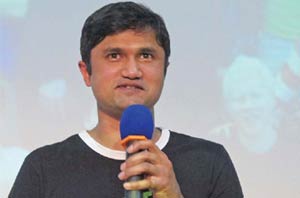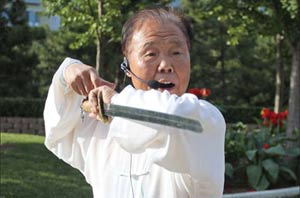School under fire for testing pupils' IQ
Updated: 2011-10-13 07:56
By Zheng Caixiong (China Daily)
|
|||||||||
GUANGZHOU - A probe has been launched into why a school in Guangzhou sent a group of struggling students to hospital for an IQ test.
Suifeng Primary School has come in for harsh criticism since it had doctors check the intelligence of 13 youngsters who performed poorly in examinations.
Many people said the move was aimed at boosting the school's average academic record, claiming that regulations allow authorities to discount exam scores of pupils found to be of low intelligence when assessing overall teaching performance, which would allow staff to receive bigger bonuses.
School heads insisted, however, that they simply wanted to learn more about the children so they could better teach them in accordance with their aptitudes.
Education authorities in Guangzhou's Baiyun district have pledged to investigate and punish anyone if there has been a violation of the law or regulations.
Baiyun officials declined to comment about the case when contacted by China Daily on Wednesday. However, an unnamed official quoted by Guangzhou-based Information Times said: "Education departments have never introduced regulations that allow schools to test the IQ of their students."
The official also denied there is a policy of ruling out the performance of students with low IQs when assessing a school's teaching level.
The 13 pupils were taken to Guangdong 999 Brain Hospital on Oct 10. According to a media report that quoted doctors at the clinic, seven of the youngsters - their ages were not specified - scored less that 80 points on the IQ test, suggesting a potential mental deficiency.
A Suifeng teacher who asked to be identified only as Guan told China Daily the school informed the pupils' parents before taking them to hospital, and assured them that only the principal and class advisers would see the results.
A medic at Guangdong 999 Brain Hospital quoted by Information Times said Guan repeatedly asked them not to make the case public when she arrived with the students.
"The pupils were told they were just receiving routine health checks," an unnamed doctor was quoted as saying. "(We were told that) they had been brought for IQ testing because they were performing poorly at school, unable to do homework, slow to react or were frequently violating classroom rules."
The case has raised great concern among experts. Yet, Guo Shenchang, a professor at Guangdong 999 Brain Hospital, applauded the move as it showed the school is paying attention to the students' mental health.
However, he did emphasize that poor academic performance cannot always be blamed on a low IQ. "Some pupils score badly in exams because they are too active during class and do not listen to teachers attentively," he added.
Li Yanyue, a psychologist based in Guangzhou, agreed and said testing the IQ of children should be handled with care.
"Those who fail to have good scores in exams might be labeled stupid by teachers and parents, and that could have negative impact on their mental development," Li said.









